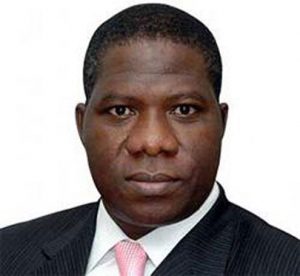The Nigerian Senate on Tuesday began the process of constitutional amendments to accommodate virtual court proceedings in Nigerian courts.
By the time the amendment is completed, it is expected to give constitutional backing to the conduct cases through electronic mechanisms such as Skype, Zoom, WhatsApp and other other social media platforms.
Just last week, Lagos State judiciary conducted its first virtual proceedings wherein it sentenced a defendant to death for murder. The defendant’s trial had been on before the advent of COVID-19 pandemic that rendered the whole word, including Nigeria and its judiciary, redundant.
Moreover senior lawyers have been holding discourse on how virtual proceedings will change the course of justice in the country. Only yesterday, Monday, May 11, 2020, Wole Olanipekun hosted a webinar titled “Legal and Infrastructural Considerations for remote Court Proceedings in Nigeria”. The webinar was moderated by the chamber’s Managing Partner, Mr Bode Olanipekun SAN. In attendance was the Chief Justice of Nigeria, Justice Ibrahim Tanko Mohammed, several appellate court justices and over 1000 stakeholders in the administration of the Justice System. Senior partner of the chambers, Chief Wole Olanipekun advocated a constitutional amendment to give legal teeth to virtual court proceedings.
However, on Tuesday, Senator representing Ekiti Central Senatorial District, and member, Body Of Benchers, Sen Michael Opeyemi Bamidele introduced the “1999 Constitution of the Federal Republic of Nigeria (Alteration) Bill, 2020 (SB. 418)”. The bill is aimed at ensuring the much-needed corresponding amendment of relevant provisions of the Constitution of the Federal Republic of Nigeria (1999, as amended) in giving legal backing to virtual court proceedings.
The provisions of the Bill as contained in the draft copy include the amendment of Section 36(3) which states thus:

“This section is hereby amended by the addition of the following: “Provided that nothing in this subsection shall invalidate proceedings of a court or the proceedings of a tribunal relating to matters mentioned in subsection (1) of this section (including the announcement of the decisions of the court or tribunal) where same is held by remote hearing or any virtual means now in existence or yet to be developed.
“Section 36 subsection (4) is hereby amended by addition of sub-paragraph (c) as follows: (c) nothing in the foregoing paragraphs shall invalidate proceedings of a court or the proceedings of a tribunal relating to matters mentioned in subsection (1) of this section (including the announcement of the decisions of the court or tribunal) where same is held by remote hearing or any virtual means now in existence or yet to be developed.
“Section 36 subsection (12) is hereby amended by addition of the following subsection (13): In this section, “remote hearing” means proceedings or hearing of court conducted via zoom, skype, WhatsApp video or any other social media platform or technological innovation.”
Sen Bamidele explained that section 36 (3) is sufficiently controversial enough now in terms of requirement of public hearing and determination of disputes.
This, according to him, endangers the results of virtual proceedings. “Except the amendment is done urgently, the whole judicial functions of the country will remain paralysed”, he argued.
According to him, the Bill needs to be given expeditious consideration and passage. “It is a case of emergency now. Upon second reading, the States can be given three days to make returns so that before the end of the month, the process is completed.
“The CJN in the wake of COVID-19 pandemic and the inability of courts to hold courtroom proceedings had taken steps, by issuing Practice Directions” that will ensure continued court sittings through virtual proceedings in accordance with global best practices, with some State Chief Judges coming out to openly adopt and implement the NJC guidelines.
However, Nigerian lawyers have been divided over this issue as there has been an ongoing debate among legal practitioners as to whether or not virtual hearing is real hearing as provided for in the Constitution while some are insisting that the word “public” in the Constitution shall continue to mean physical courtroom or other designated place unless and until the relevant provisions in section 36 of the Constitution are amended,”.
Bamidele said the NJC has a responsibility to work with stakeholders to manage the current situation until the Constitution is amended “as neither the practice direction, rules of court, nor an Act of the National Assembly can change the legal position so that we do not bury our heads in the sand yet again until the sand is blown off by the storm of section 1, subsection 3 (inconsistency clause) of the Constitution if and when it is ignited.”
He appealed for the understanding of journalists as he insisted the details and general principles of the Bill, which just passed first reading, must first be debated on the floor of the Senate when it comes up for second reading during the next legislative day before it can become a matter for analysis in the media.
According to him, once copies of the Bill are distributed among senators to enable them to study the details before the next adjourned date, other senators would be able to make further inputs if any, while the Bill would be subjected to public scrutiny through a public hearing for stakeholders both from the bar and the bench to actively participate in fine-tuning it as a very important piece of legislation.
Dear readers, we really need your support to keep on serving you with authoritative, truthful, and juicy stories everyday. For your support, please reach out to the editor @gavelinternational66@gmail.com

